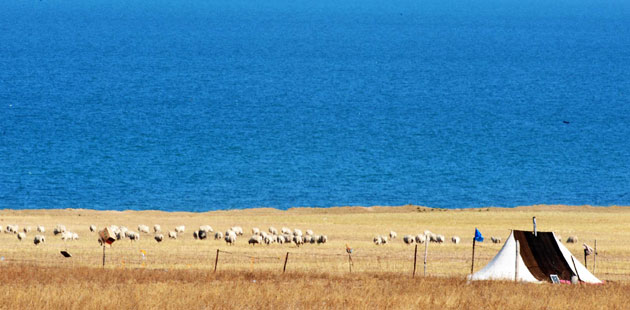Wen says jobs a priority despite economic headwinds
Updated: 2011-10-23 15:31
(Agencies)
|
|||||||||||
BEIJING - China will make job creation a more urgent priority in the face of slowed economic growth and weakened exports, Premier Wen Jiabao said in comments published on Sunday, also warning that efforts to tame housing prices were at a critical point.
While visiting the southern region of Guangxi Zhuang autonomous region, Wen took on the issues that have raised worries about the direction of the world's second biggest economy: inflation, housing costs, weakened demand from rich economies, and the pressure to secure jobs for millions of university students and rural migrants.
"Currently, economic growth is slowing and external demand is falling, and we should make employment even more of a priority in economic and social development, doing our utmost to expand employment," Wen told officials in Guangxi Zhuang autonomous region, a poorer region next to export-driven Guangdong province, the People's Daily reported.
Those efforts would include "ensuring an appropriate rate of economic growth" and supporting labour-intensive industries, small businesses and private firms, he said.
The Chinese premier made clear that jobs and social stability are dominant concerns.
People's livelihoods should assume a more important role in setting macroeconomic policy because such needs affect "social harmony and stability", said Wen, who visited Guangxi on Friday and Saturday.
Right balance
The?government faces a tricky test in striking the right balance between maintaining growth and containing inflation.
China's economic expansion slowed to 9.1 percent from a year earlier in the third quarter, its weakest pace in more than two years as euro-debt strains and a sluggish US economy took a toll. ?
In September, consumer inflation dipped to 6.1 percent, retreating from three-year highs, but stubborn food price pressures remain a worry for policymakers.
"To rein in prices, we must first properly deal with food prices," Wen told officials.
The price of pork, a key meat for many Chinese people, was levelling off, but winter could add new pressures, he added.
"With the arrival of winter, consumption (of pork) will increase," he said. He urged officials to boost production by ensuring that incentives reach pig breeders and feed prices are kept stable. Corn processing projects should also be restricted to counter rising prices for that grain, Wen said.
The?government must also deal with relentless pressure to find jobs.
China has 242 million rural residents who work off the farm, and 153 million of them are migrants working outside their home towns. They are joined by millions more migrants every year, hunting for work in factories and on building sites. As well, more than six million college and university graduates entered the workforce this year.
Wen also said another plank of the government's efforts to contain price rises - containing housing costs - was at a crucial stage.
Housing prices in China have climbed to record highs, although annual property inflation eased to a low of 3.5 percent in September as Beijing's campaign to cool the market made inroads. ?
"All levels of government must take effective measures to consolidate the fruits of (housing price) controls," he said. Those efforts should include ensuring the government's goals to expand affordable, state-backed housing are met, Wen said.
As of August, China had built 8.68 million units of homes for rental or sale to poorer families this year, putting it on track to fulfill its full-year goal of 10 million homes.
Hot Topics
Libya conflict, Gaddafi, Oil spill, Palace Museum scandal, Inflation, Japan's new PM, Trapped miners, Mooncake tax, Weekly photos, Hurricane Irene
Editor's Picks

|

|

|

|

|

|







